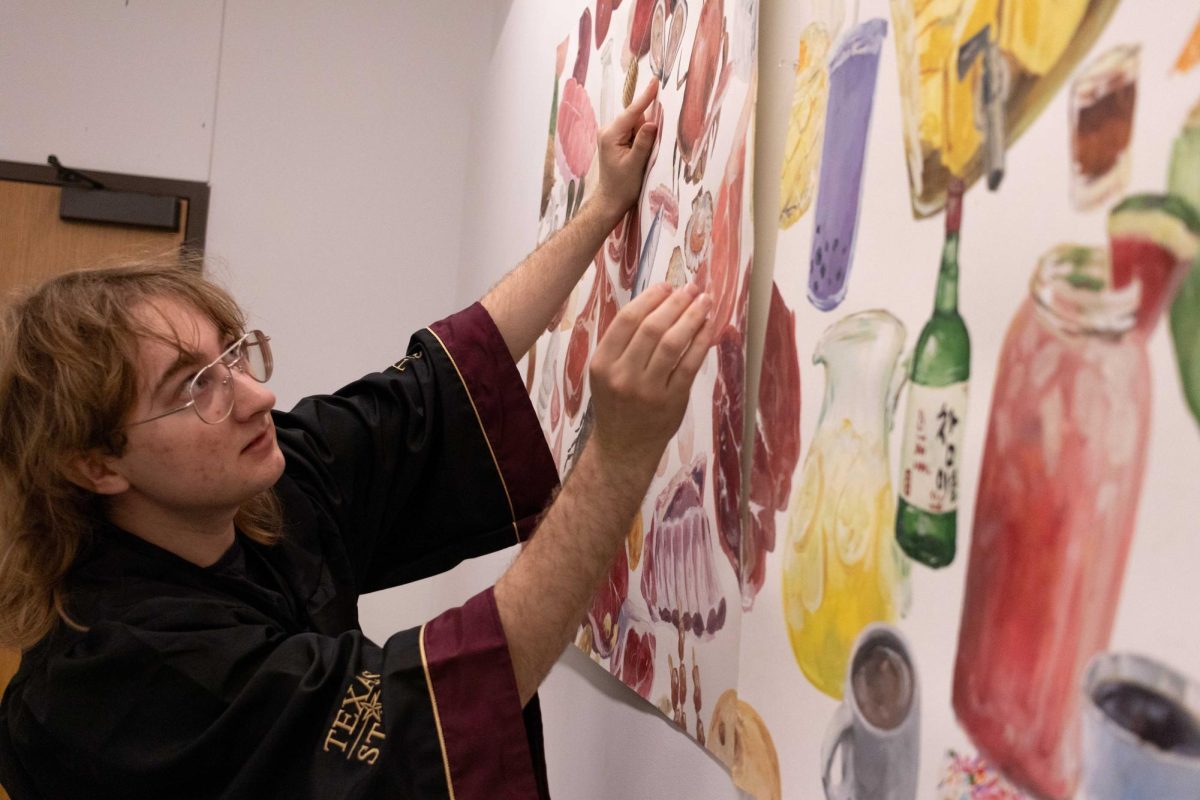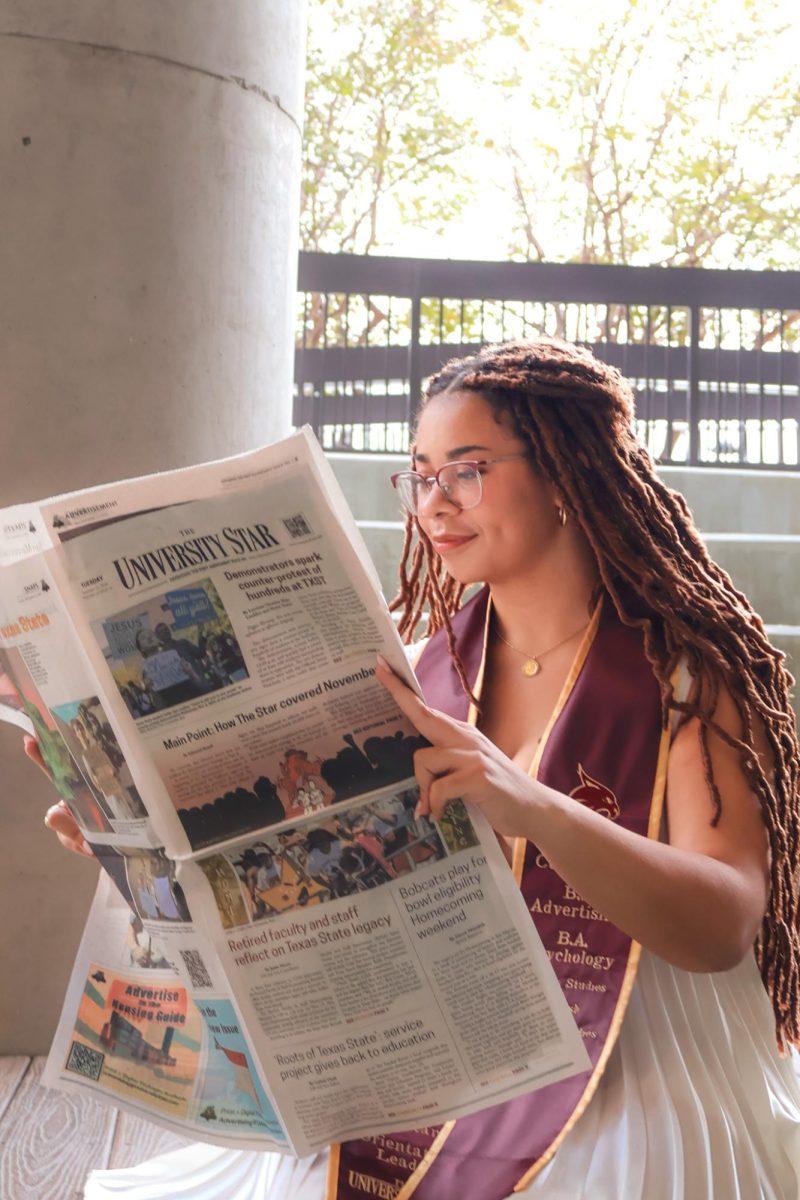A 5-foot-11-inches tall Black male with a beard, mustache, medium length hair and unknown clothing.
We are certain there are dozens of Black men on Texas State’s campus who fit such a description. Some are breadwinners. Some are on the academic Dean’s List viewable in the LBJ Student Center. Others are leaders on this campus actively working toward change for the better.
But this past weekend, Texas State contributed to a different narrative when it sent out a Timely Warning, ‘Your Right to Know’ alert to the university community about a sexual assault suspect for an alleged incident that took place in a residence hall.
To be clear: We have no problem with Texas State sending the alert with the intention of telling the community to “take precautions to not become victims,” as Police Chief Laurie Clouse says. The alleged incident was valuable information to the community, and Texas State made the right call by sending out the alert. Sexual assault, no matter the perpetrator’s race or ethnicity, is a serious matter that should always receive attention.
But Texas State did not just send an alert to students, faculty and staff about an ongoing security threat. It also invoked fear. The university painted every relatively-tall Black man with facial hair as a suspect.
We take issue with the university not waiting until it gleaned more information on the alleged suspect. By sending such a vague description to the community and not specifying the exact location of the alleged incident, Black men anywhere on campus at the time were placed in immediate danger.
Texas State failed to think about the impact its actions would have which, as a university made up of 11% Black students, is absolutely unacceptable. Black men are associated with criminality and overrepresented “as perpetrators of violent crime when news coverage is compared with arrest rates,” according to The Opportunity Agenda, a social justice communication lab that works to advance the impact of the social justice community, and Texas State’s decision to put out such insufficient information contributed to that problem.
On a larger scale, numerous studies have proven that Black communities are disproportionately victims of the U.S. criminal justice system. Black people are more likely to be arrested than their racial counterparts. Black people are likely to experience longer prison sentences than their racial counterparts.
None of this is a result of Black people actually committing crimes at higher rates. It is rather the result of this country operating two different criminal justice systems: One for the wealthy and another for marginalized communities made up predominantly of people of color, according to The Sentencing Project.
This country’s criminal justice system has molded us to unconsciously associate crime and violence with Black communities. That same unconscious bias has led people to cling to the myth that is Black on Black crime. We saw it when rioting and looting were associated with Black Lives Matter, when in actuality it was discovered that over 90% of BLM protests were peaceful. We see it in every mugshot sent in city crime press releases and posted to news organizations’ websites, a policy The University Star has had to address in recent months.
This school year, University President Denise Trauth has published numerous messages in support of Black lives, a change in tone from the same leader who previously refused to condemn white supremacy. She now says the importance of Black lives on campus is not up for debate and has pointed to a series of seemingly-performative actions, such as the renaming of campus buildings, as evidence.
But Texas State’s actions this past weekend are a reflection of how the university has regarded its Black students for far too long. The harm this university placed Black students in cannot and should not be understated. Not when the disproportionate impact of the criminal justice system has cost Black people their lives and freedom.
When is enough, enough?
Categories:
Opinion: Texas State fails Black students…again
February 1, 2021
The Main Point is an opinion written collectively by The University Star’s Editorial Board. Opinions expressed are not necessarily those of our entire publication.
0
Donate to The University Star
Your donation will support the student journalists of Texas State University. Your contribution will allow us to purchase equipment and cover our annual website hosting costs.
More to Discover


















